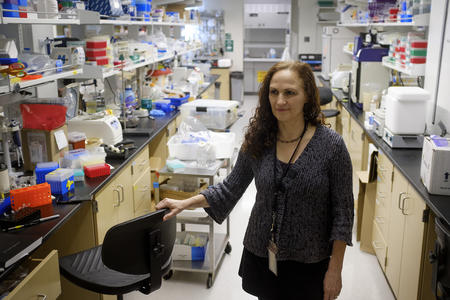So when asked to share his broader perspectives on the pandemic and what this crisis means for him personally, as well as American life and politics in general, the critical care pulmonologist and major in the U.S. Air Force Reserve Medical Corps opened up like a religious man in a confessional.
Gupta goes out of his way to enhance trust in medicine — going so far as to tape his first of two COVID vaccinations live on NBC’s Today Show Wednesday morning. But why it’s so important for him to do so doesn’t always come up.
“I feel lucky to be one of the first recipients,” he told Crosscut’s Monica Guzman in a live Northwest Newsmakers interview hours later. “There is no way out of this pandemic without broad adoption of this vaccine.”
Gupta, one of the most trusted doctors in public health, has a habit of correcting misinformation about the virus or vaccine and speaking hard truths. He’s the first to tell you that we don’t know the prognosis for people with enduring post-COVID symptoms, and that the vaccine isn’t a “magic bullet” for getting us out of this crisis, or that it allows the vaccinated to go back to their old lives.
“We need a certain proportion of the population to get this vaccine” before it provides herd immunity, he said. And while we know the vaccine protects against the worst COVID symptoms, he said, there’s a lot we don’t know about its usefulness yet.
It’s not what everyone wants to hear, but Gupta believes leveling with people about the limits of our understanding will hopefully help him earn their trust.
“I don't know how long immunity lasts, [and] I don't know if this vaccine protects against transmission, which is why I say for the time being, even if you’ve gotten your two-dose regimen, please mask and distance for the benefit of your loved ones, at least,” he said.
Sharing truths as basic as these still earns him detractors, which makes him worry about the long-term outlook for stopping the virus.
“I’m portrayed for what I was saying — which I thought was purely scientific information — as extremist … [and] as science gone rogue,” he said. “These are major issues that if we do not anticipate and try to develop a whole society dialogue and [communications] strategy on, I think we're going to find that this pandemic ends up not petering out as quickly as we had hoped.”
As a military man, Gupta is used to making sacrifices for the greater good — and he doesn’t mince words about politicians’ decisions and messaging around the virus that don’t seem to achieve that.
“The thing that really troubled me in the middle of all this was when we found out that the president understood in clear terms that COVID-19 was an airborne transmitted disease … as early as Feb. 7,” Gupta said, referring to when President Donald Trump misrepresented the severity of the coronavirus to the public in the spring, setting back the country’s ability to control the pandemic. “I want a president who looks at the strategic national stockpile to see what do we have in terms of N95s [face masks]? What do we have in terms of ventilators? Not wait six weeks, which effectively is what happened.”
He’s as eager as anyone to gain back missing parts of his life. When Gupta thinks about what he misses most from before the pandemic, it’s understated pleasures that spring to mind. Nine months into a crisis that has taken nearly 3,000 lives in Washington state alone, the Seattle-based Gupta is realizing just how restorative simple experiences can be — dining with his wife at their favorite Italian restaurant in Ballard, weekend trips to the San Juans — and how they can change his perspective on what it takes to make them happy.
Despite everything we don’t know about the vaccine, there’s no question that most should take it when one is available to them, he said — no matter the headlines you see about allergic reactions or other side effects.
“I will take my chances on managing allergic response, however rare and infrequent it is,” he said. “What I don't want to take my chances on ... is COVID-19.”





